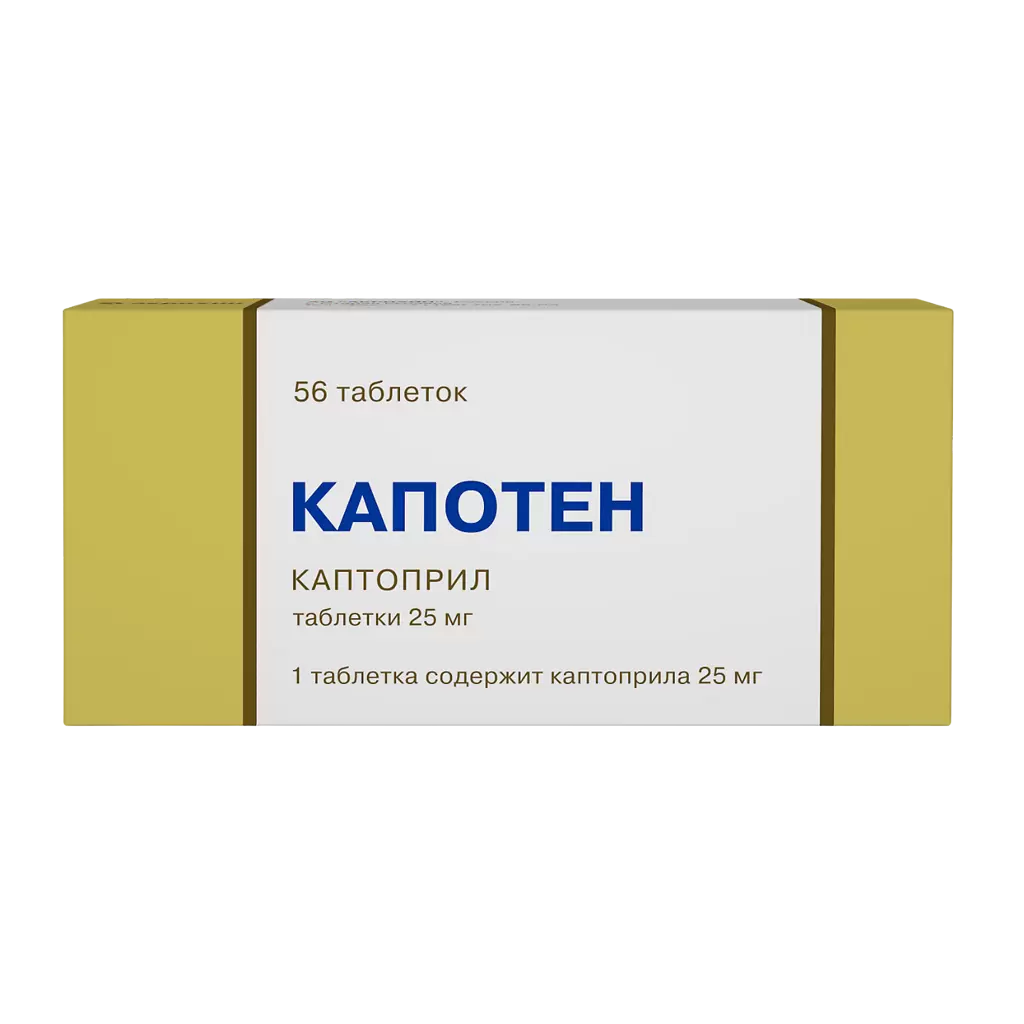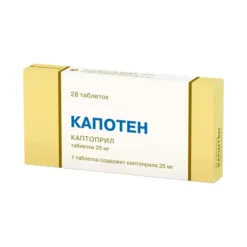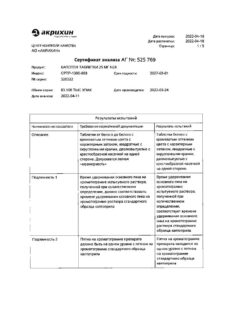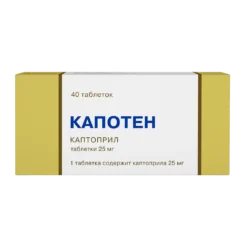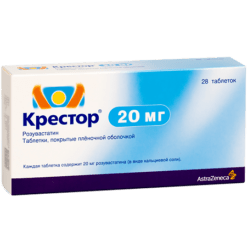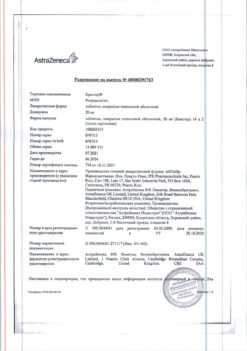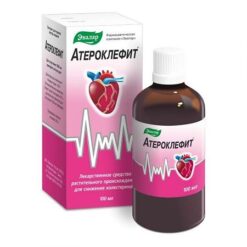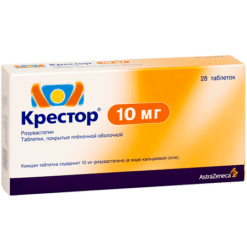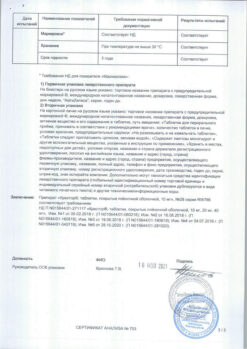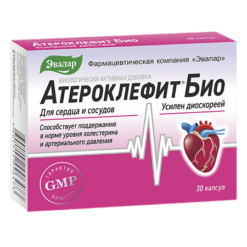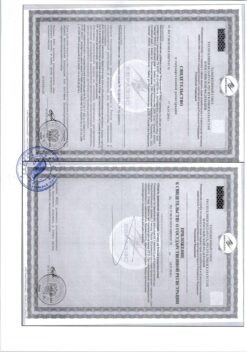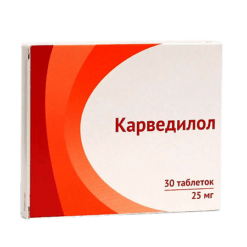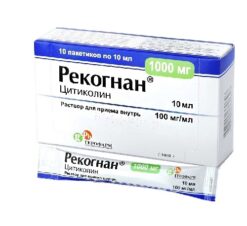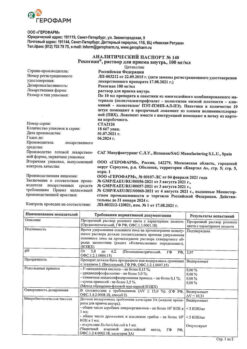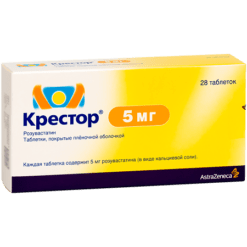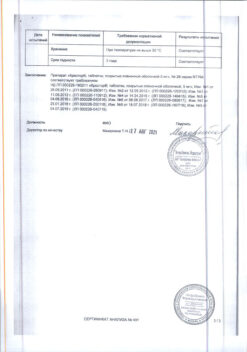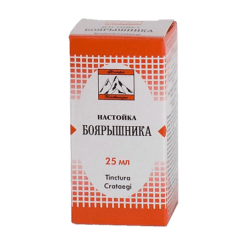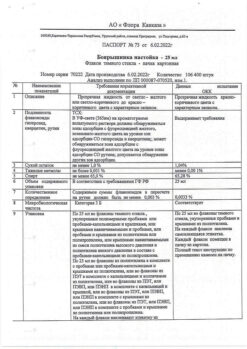No products in the cart.
Capoten, tablets 25 mg 56 pcs
€9.28 €8.12
Description
Captopril is a highly specific competitive first generation angiotensin-converting enzyme (ACE) inhibitor containing a sulfhydryl group (SH-group). It reduces the activity of the renin-angiotensin-aldosterone system (RAAS). By inhibiting ACE, captopril reduces the conversion of angiotensin I to angiotensin II and eliminates the vasoconstrictor effect of the latter on arterial and venous vessels. As a result of decreasing the concentration of angiotensin II, there is a secondary increase in plasma renin activity (due to the elimination of negative feedback) and a decrease in aldosterone secretion by the adrenal cortex. The antihypertensive effect of captopril does not depend on the activity of plasma renin. Decrease of BP is noted with normal and even reduced activity of the hormone, which is due to the effect on tissue RAAS.
Captopril reduces ACE-mediated degradation of bradykinin and increases its content in body tissues. As a result of ACE inhibition, circulating and tissue kallikrein-kinin system activity increases, which contributes to peripheral vasodilation by accumulation of bradykinin (a peptide with a marked vasodilatory effect) and increased synthesis of prostaglandin E2. This mechanism may contribute to some antihypertensive effect of captopril, and is also the cause of some adverse reactions (in particular, dry cough).
In patients with arterial hypertension, captopril reduces blood pressure (BP) without a compensatory increase in heart rate (HR), fluid retention and sodium ions in the body. After a single oral administration, maximum antihypertensive effect is observed after 60-90 minutes. The degree of blood pressure reduction is the same when the patient is “standing” and “lying down”. Duration of the antihypertensive effect depends on the dose of the drug. The antihypertensive effect of captopril may increase over time and reaches optimal values after several weeks of therapy. Orthostatic hypotension rarely develops, mainly in patients with reduced circulating blood volume. Sudden discontinuation of captopril usually does not lead to development of “withdrawal” syndrome.
In patients with arterial hypertension, captopril increases renal blood flow while glomerular filtration rate is usually unchanged. With long-term use, it reduces left ventricular myocardial hypertrophy.
When captopril is taken sublingually in patients with uncomplicated hypertensive crisis, the onset of antihypertensive action is noted after 10-20 minutes; the maximum antihypertensive effect is seen after 45-60 minutes.
In patients with chronic heart failure (CHF), captopril significantly decreases total peripheral vascular resistance (TPV) and increases venous volume (thus reducing pre- and post-load on heart), decreases right atrial and small circulatory pressure, increases cardiac output and improves exercise tolerance.
In placebo-controlled clinical trials in patients with left ventricular dysfunction (left ventricular ejection fraction ≤40%) after myocardial infarction, captopril increased survival, delayed the development of clinically significant heart failure, and reduced rates of hospitalizations for heart failure.
In a clinical trial in patients with type I diabetes mellitus, diabetic nephropathy, retinopathy, and proteinuria ≥500 mg/day, captopril reduced proteinuria and reduced the rate of progression of diabetic nephropathy. The efficacy and safety of captopril in children have not been established.
Indications
Indications
– arterial hypertension, including renovascular (including uncomplicated hypertensive crisis);
Pharmacological effect
Pharmacological effect
Captopril is a highly specific, competitive first-generation angiotensin-converting enzyme (ACE) inhibitor containing a sulfhydryl group (SH group). Reduces the activity of the renin-angiotensin-aldosterone system (RAAS). By inhibiting ACE, captopril reduces the conversion of angiotensin I to angiotensin II and eliminates the vasoconstrictor effect of the latter on arterial and venous vessels. As a result of a decrease in the concentration of angiotensin II, a secondary increase in plasma renin activity occurs (due to the elimination of negative feedback) and a decrease in the secretion of aldosterone by the adrenal cortex. The antihypertensive effect of captopril does not depend on plasma renin activity. A decrease in blood pressure is observed with normal and even reduced hormone activity, which is due to the effect on the tissue RAAS.
Captopril reduces ACE-mediated degradation of bradykinin and increases its content in body tissues. As a result of ACE inhibition, the activity of the circulating and tissue kallikrein-kinin system increases, which promotes peripheral vasodilation due to the accumulation of bradykinin (a peptide with a pronounced vasodilating effect) and an increase in the synthesis of prostaglandin E2. This mechanism may make a certain contribution to the antihypertensive effect of captopril, and is also the cause of some adverse reactions (in particular, dry cough).
In patients with arterial hypertension, captopril reduces blood pressure (BP) without a compensatory increase in heart rate (HR), fluid retention and sodium ions in the body. After a single oral dose, the maximum antihypertensive effect is observed after 60-90 minutes. The degree of reduction in blood pressure is the same when the patient is in the “standing” and “lying” positions. The duration of the antihypertensive effect depends on the dose of the drug. The antihypertensive effect of captopril may increase over time and reaches optimal values after several weeks of therapy. Orthostatic hypotension develops rarely, mainly in patients with reduced circulating blood volume. Sudden discontinuation of captopril, as a rule, does not lead to the development of withdrawal syndrome.
In patients with arterial hypertension, captopril increases renal blood flow, while the glomerular filtration rate usually does not change. With long-term use, it reduces left ventricular myocardial hypertrophy.
When taking captopril sublingually in patients with uncomplicated hypertensive crisis, the onset of antihypertensive action is observed within 10-20 minutes; the maximum antihypertensive effect is observed after 45-60 minutes.
In patients with chronic heart failure (CHF), captopril significantly reduces total peripheral vascular resistance (TPVR) and increases venous volume (thus reducing pre- and afterload on the heart), reduces pressure in the right atrium and pulmonary circulation, increases cardiac output and improves exercise tolerance.
In placebo-controlled clinical trials in patients with left ventricular dysfunction (left ventricular ejection fraction ≤ 40%) after myocardial infarction, captopril increased survival, slowed the progression of clinical heart failure, and reduced hospitalizations for heart failure.
In a clinical study in patients with type 1 diabetes mellitus, diabetic nephropathy, retinopathy, and proteinuria ≥ 500 mg/day, captopril reduced proteinuria and reduced the rate of progression of diabetic nephropathy. The effectiveness and safety of captopril in children have not been established.
Special instructions
Special instructions
Capoten should be prescribed with caution for collagenosis due to the increased risk of neutropenia and agranulocytosis.
When prescribing the drug to patients with severe water-electrolyte imbalance, this condition should be corrected. During treatment with Capoten, it is not recommended to take potassium-sparing diuretics or potassium supplements, especially in patients with severe renal impairment.
Angioedema of the extremities, face, lips, mucous membranes, tongue, pharynx or larynx is observed in patients using ACE inhibitors, including captopril. If the swelling is limited to the face and lips, this condition usually goes away when you stop using the drug. Antihistamines can be used to relieve clinical symptoms. Patients should be under medical supervision until symptoms disappear. If swelling covers the tongue, pharynx or larynx with a threat of developing airway obstruction, 0.5 ml of 0.1% adrenaline solution should be administered subcutaneously.
During treatment with Capoten, a low sodium diet is indicated.
Capoten can cause a false-positive reaction when testing urine for acetone.
Use in pediatrics
The safety and effectiveness of the drug in children have not been studied.
Active ingredient
Active ingredient
Captopril
Composition
Composition
One tablet contains:
Contraindications
Contraindications
History of hypersensitivity (including to other ACE inhibitors), Quincke’s edema (hereditary or associated with a history of use of ACE inhibitors), severe renal and liver dysfunction, hyperkalemia, bilateral renal artery stenosis or stenosis of the artery of a single kidney with progressive azotemia, condition after kidney transplantation, aortic stenosis and similar obstructive changes that impede blood outflow, pregnancy, breastfeeding.
Side Effects
Side Effects
From the cardiovascular system: orthostatic hypotension, tachycardia, peripheral edema.
From the respiratory system: dry cough, bronchospasm, pulmonary edema.
Allergic reactions: angioedema of the extremities, face, lips, mucous membranes, tongue, pharynx or larynx.
From the side of water and electrolyte balance: hyperkalemia (most likely in renal failure), hyponatremia (most often with a salt-free diet and simultaneous use of diuretics.
From the urinary system: proteinuria, increased levels of urea nitrogen and creatinine in the blood plasma, acidosis.
From the hematopoietic system: in rare cases – neutropenia, agranulocytosis, thrombocytopenia and anemia, a positive test for antibodies to nuclear antigen. In patients with normal renal function (creatinine clearance less than 1.6 mg/dl) in the absence of other complicating factors, neutropenia was observed in 0.02% of cases.
From the digestive system: reversible and usually self-limiting taste disturbance, dry mouth, aphthous stomatitis; rarely – abdominal pain, diarrhea, gingival hyperplasia, hepatitis, increased levels of hepatic transaminases in the blood plasma, hyperbilirubinemia.
Dermatological reactions: macular-papular rash, usually accompanied by itching and, in rare cases, increased body temperature; hyperemia, vesicular or bullous rashes, erythema (including Stevens-Johnson syndrome), photosensitivity.
From the central nervous system and peripheral nervous system: headache, dizziness, ataxia, paresthesia, drowsiness, visual impairment.
Interaction
Interaction
Diuretics, vasodilators, ganglion blockers, adrenergic blockers, when used simultaneously, enhance the antihypertensive effect of the drug Capoten.
Indomethacin and other NSAIDs, as well as clonidine, may reduce the antihypertensive effect of Capoten.
During the simultaneous use of Capoten with allopurinol and procainamide, neutropenia and/or Stevens-Johnson syndrome may occur, but the cause-and-effect relationship of these phenomena is not clear.
When used simultaneously with Capoten, immunosuppressants (for example, azathioprine and cyclophosphamide) increase the risk of developing hematological disorders.
With the simultaneous use of probenecid, the excretion of captopril in the urine is reduced.
The simultaneous use of lithium salts and Capoten may lead to an increase in the concentration of lithium in the blood serum. This increases the risk of side and toxic effects of lithium drugs.
Concomitant use of Capoten with potassium-sparing diuretics (triamterene, amiloride and spironolactone) or potassium supplements can lead to hyperkalemia.
Overdose
Overdose
Symptoms: marked decrease in blood pressure.
Treatment: administration of plasma replacement drugs and hemodialysis are effective.
Storage conditions
Storage conditions
In a dry place, at a temperature not exceeding 25 °C
Shelf life
Shelf life
5 years
Manufacturer
Manufacturer
Akrikhin JSC, Russia
Additional information
| Shelf life | 5 years |
|---|---|
| Conditions of storage | In a dry place, at a temperature not exceeding 25 °C |
| Manufacturer | Akrihin HFC JSC, Russia |
| Medication form | pills |
| Brand | Akrihin HFC JSC |
Other forms…
Related products
Buy Capoten, tablets 25 mg 56 pcs with delivery to USA, UK, Europe and over 120 other countries.

